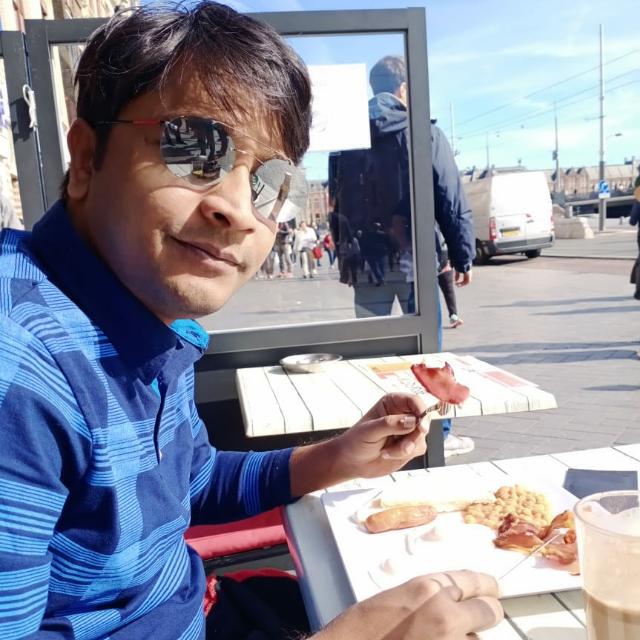Daane Daane pe likha hai khane waale ka naam (each grain of rice has the consumer’s name ingrained) goes the famous saying. The thesis of Bheemasena Nalamaharaja is to extend that saying -Each grain of rice has two names on it, the person who eats it and the person who has cooked it.
The base flavour of this food movie (and Indian cinema has not explored this genre much) is the love story between a foodie and a cook. The makers seem to have stumbled upon all the necessary ingredients for a gourmet delight but the recipe with the right mix of the ingredients seems to have been misplaced. So, you do taste romance, melancholy, hurt, bliss but sporadically while the predominant palate is bland or burnt.
The film boasts the right ingredients, but the underused screenplay fails to keep other main characters hooked
Slow burn works for a movie if it accounts for great character/plot building or the ultimate payoff is explosive. In short if the burning is not bright then slow burn can be suicidal. This is what happens in case of Bheemasena Nalamaharaja. Except for Achyuta Kumar who gets a well written character arc and scores a home run with this fantastic acting, none of the other main characters keep you hooked. Which is not to say that the acting is bad, Aravind Iyer as the titular character, Priyanka as Sarah Mary and Vijay Chendoor as Kenda are competitive in their parts but the problem is that they are let down by the screenplay. Again, a case of having the right ingredients but underused.
Other than Achyut Kumar, the other plus points of the movie are the score by Charan Raj and the cinematography (Ravindranath). Unfortunately, the elevation from the music and cinematography is not enough for the movie.
The film offers sporadic tastes of romance, melancholy, and bliss
The makers seem to be banking heavily on the end twist, but it is a surprise only if you have not seen more than 10 movies in your entire lifetime. With the twist literally in your face from the 15th minute of the playtime, the heavy lifting falls on the shoulders of the screenplay and it is bogged down under the weight. One can wonder if an earlier draft of the script exists where events moved at a brisk pace, Kenda as a character was explored further and the end reveal was better camouflaged. The movie also throws in some clever ideas that are unfortunately not, what’s-the-word, cooked.
For example, the 6-day deadline for a character’s memory to return. As per bible, God created life on the 6th day and the protagonist is waiting for his wife to come back to his life. This allegory is easy to miss unless you are someone who looks for layers in a story. The more obvious references are either incorrectly used (like the gastronomic allegory to The Last Supper) or forgotten (like the orphanage metaphor for strangers).
Bheemasena Nalamaharaja’s love story between a foodie and a cook promises a gourmet delight, but the final recipe seems misplaced
Rakshit Shetty and Hemant Rao, two of the avantgarde film makers of Kannada cinema have backed this movie and you can see why the story on paper could have got them excited. Unfortunately, the judgement will be out on the final serving and this is not a gastronomic delight. To tweak the Tolstoy quote that the movie opens with “All good dishes is one of two stories: a known recipe is perfected, or an experimental effort succeeds”.

Captive of the 24 frames and admirer of the written word. If it is not on the silver screen or on the pages of a paperback, it might as well not exist.


Be the first to comment on "Bheemasena Nalamaharaja (Review)"